RHI scandal: Social media reaction
- Published
People across Northern Ireland and further afield have been reacting to what has become known as the "ash-for-cash" scandal.
They have been watching the drama unfold at Stormont and having their say on social media.
Among the hashtags being used is #RHI - which stands for renewable heat initiative, the source of all the furore.
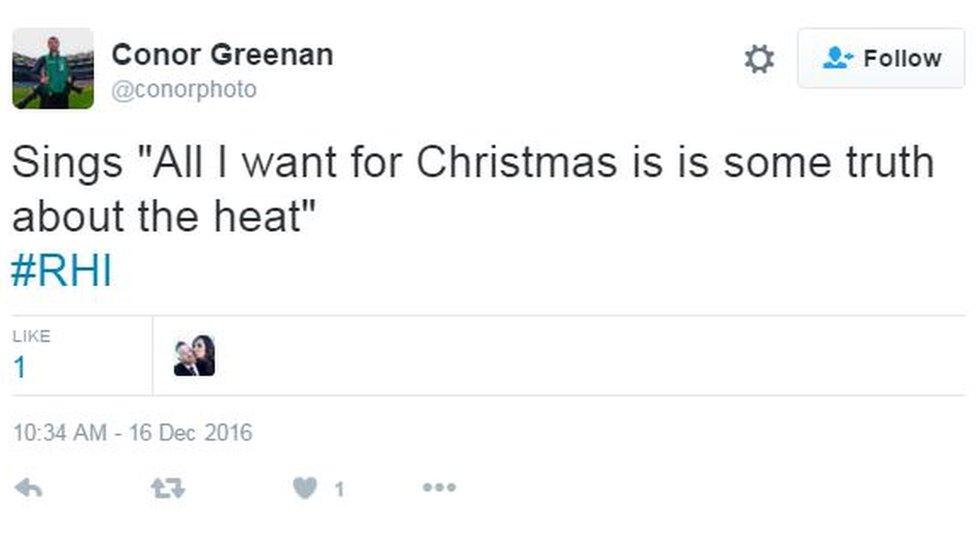
The heat being referred to is causing a lot of heat for First Minister Arlene Foster, who was the minister in charge of the scheme, set up in 2012.
The RHI offered a financial incentive for businesses and other non-domestic users to ditch fossil fuels for renewable energies.
The way the scheme was set up in Northern Ireland meant the subsidies offered were greater than the cost of the fuels, meaning users could legitimately earn more cash the more fuel they burned.
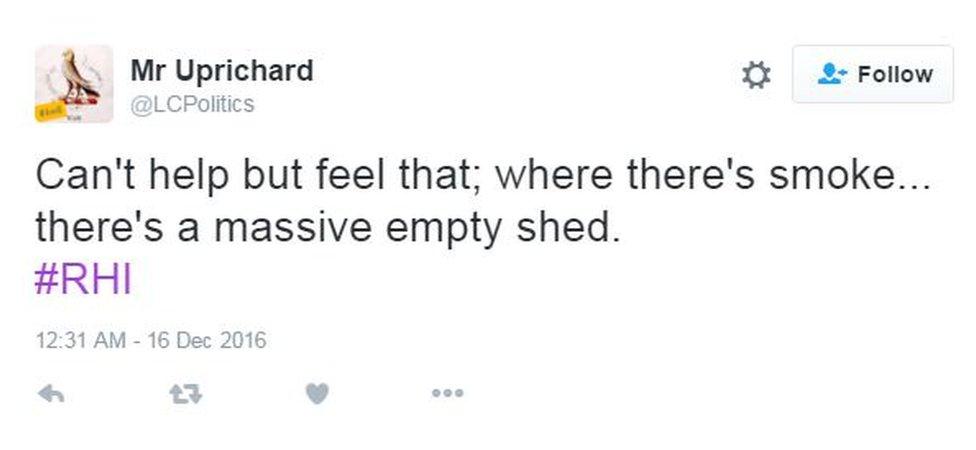
There have also been allegations of abuse with empty sheds being heated to earn money.
It has been estimated the botched scheme will cost the taxpayer £400m - and this is firing up a lot of people.
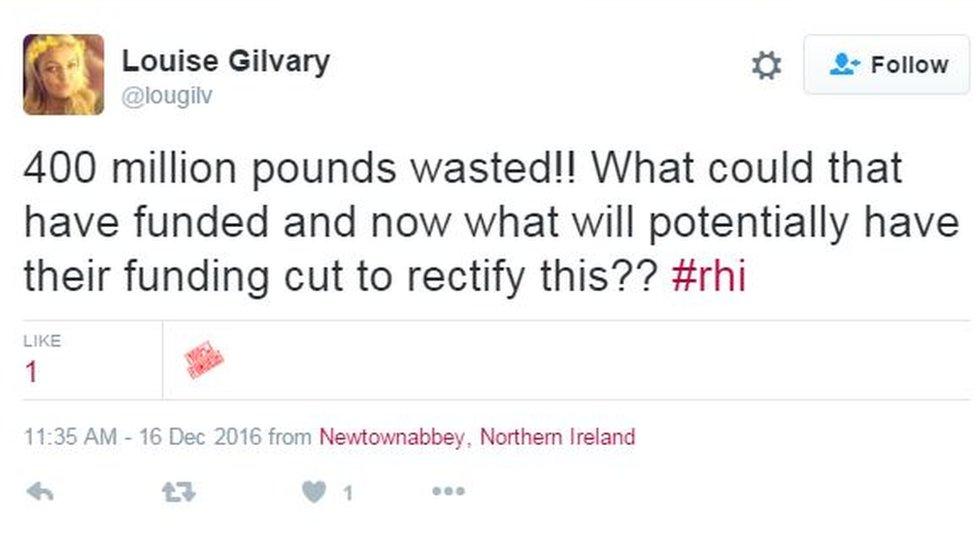
The debacle has also turned into a political ding-dong which was played out on television when the main protagonists - Mrs Foster and former DUP minister Jonathan Bell - were interviewed separately by the BBC's Stephen Nolan.
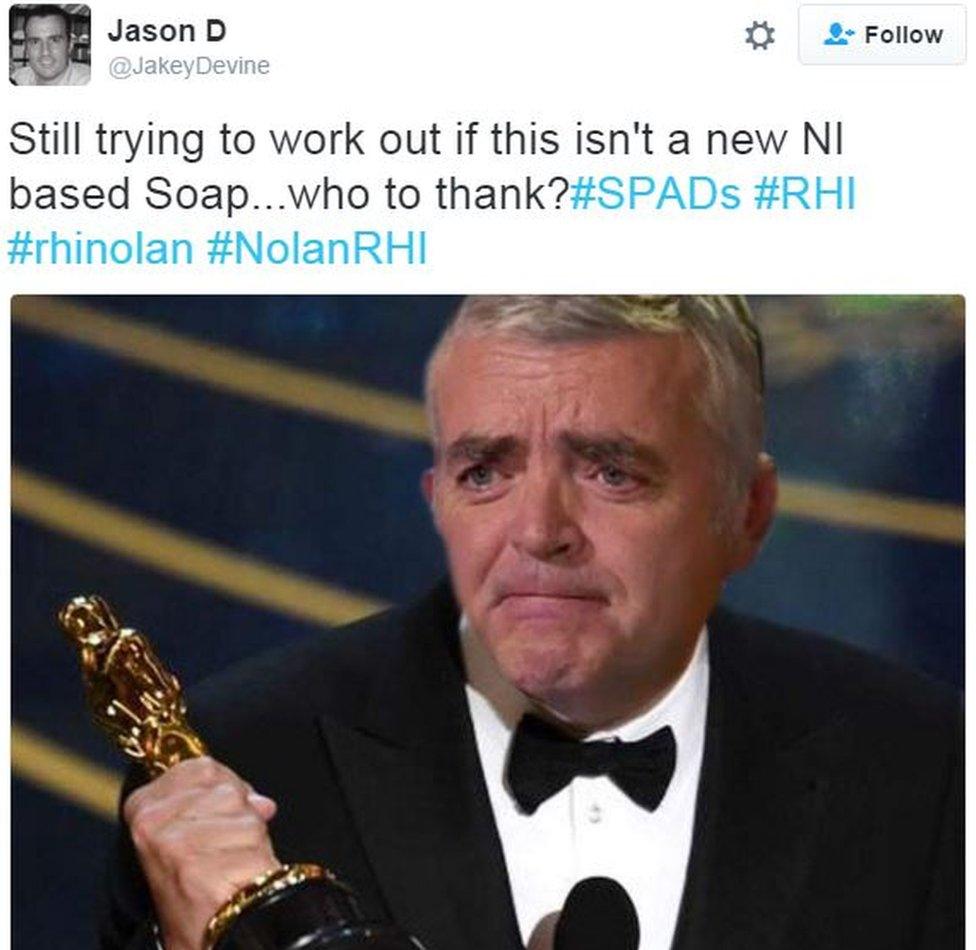
Mr Bell, pictured above, is the former enterprise minister and he claims special advisers prevented him from closing down the scheme. Mrs Foster has apologised for not putting a cap on the costs but denies any intervention that may have prolonged the scheme.
The interviews made for gripping television, with numerous claims and counter claims, and different versions of the same argument.
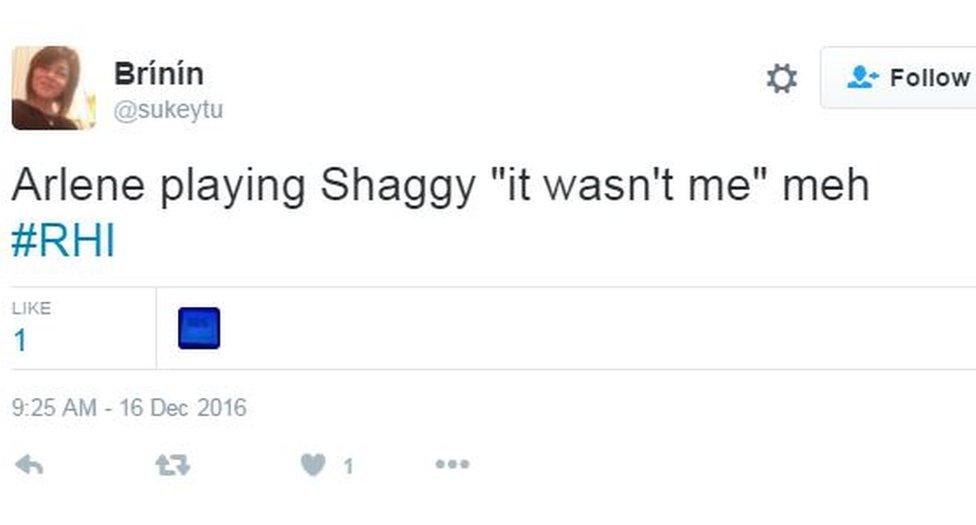
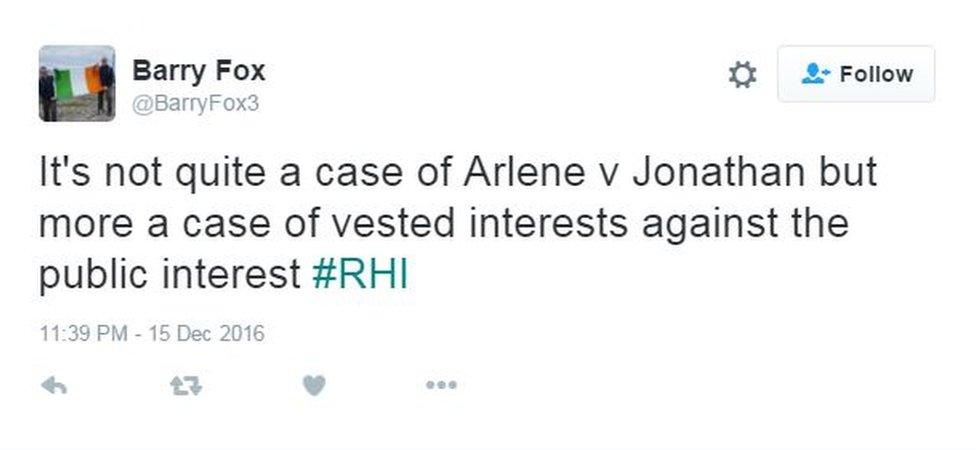
It appears the slew of revelations left a lot of people exhausted.
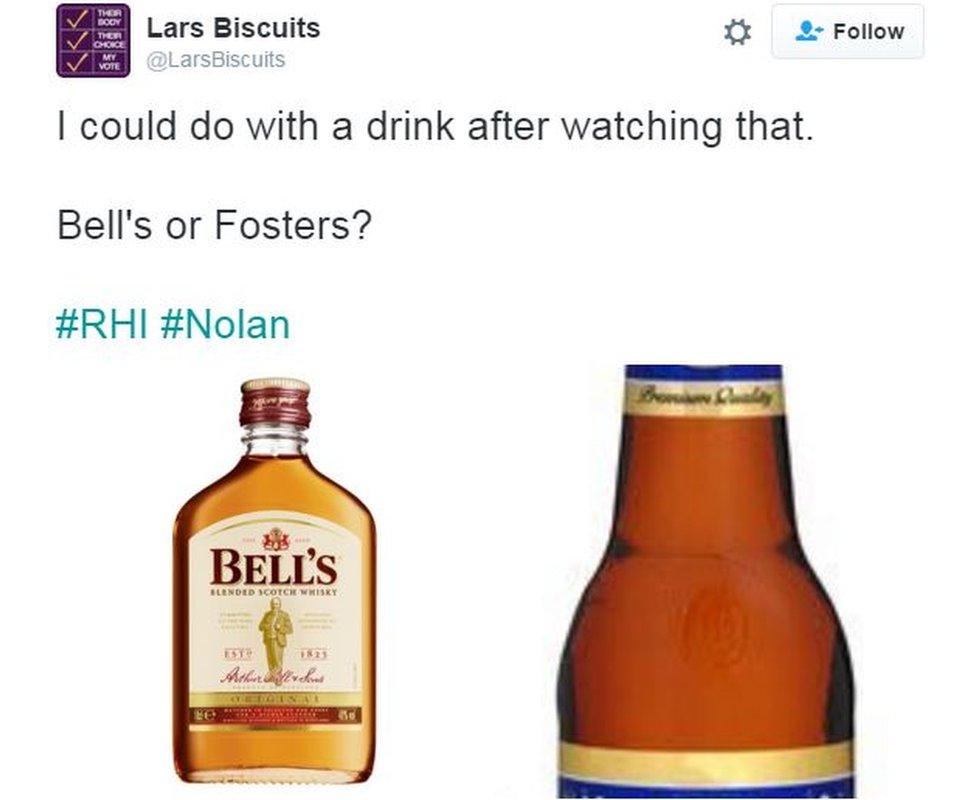
In addition to picking out key words and phrases, viewers were busy analysing body language and demeanours during the interviews.
Many people were left with more questions than answers, particularly about the role of government advisers - known as spads.
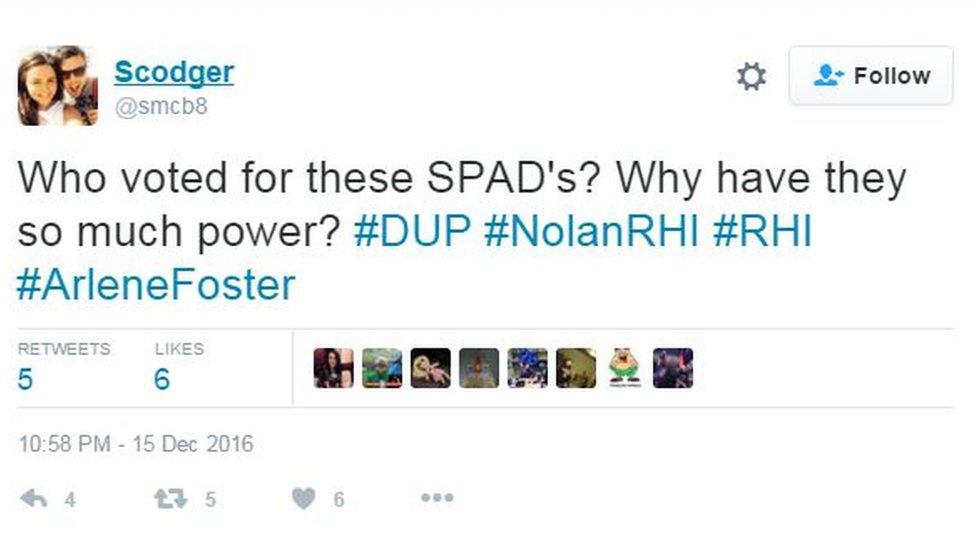
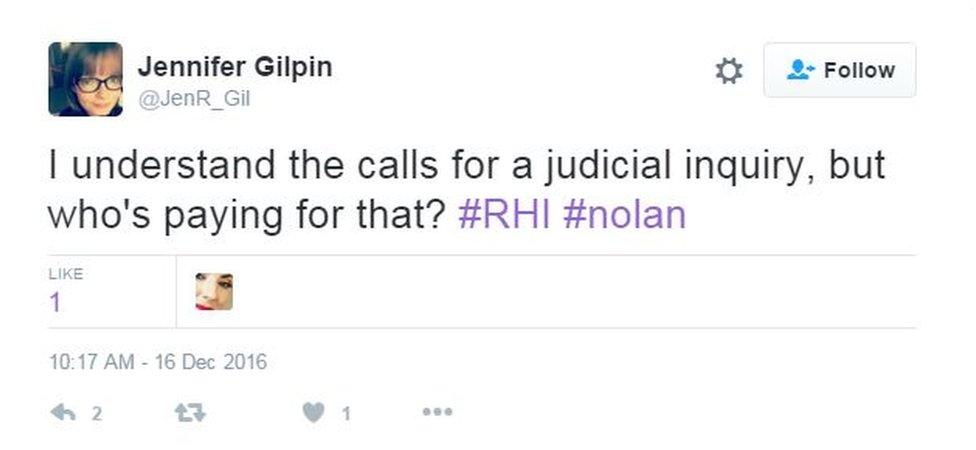
A lot of anger was expressed and plenty of predictions about what might happen next.
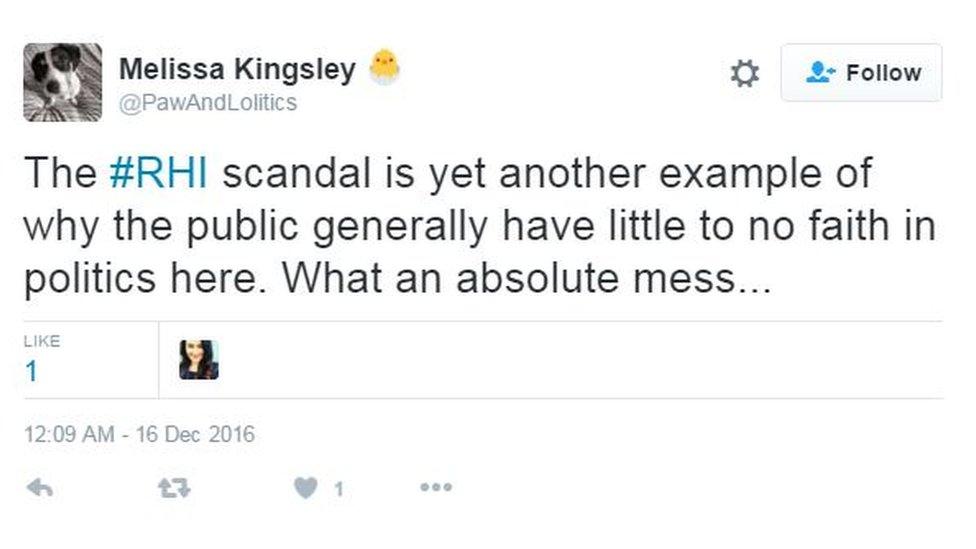
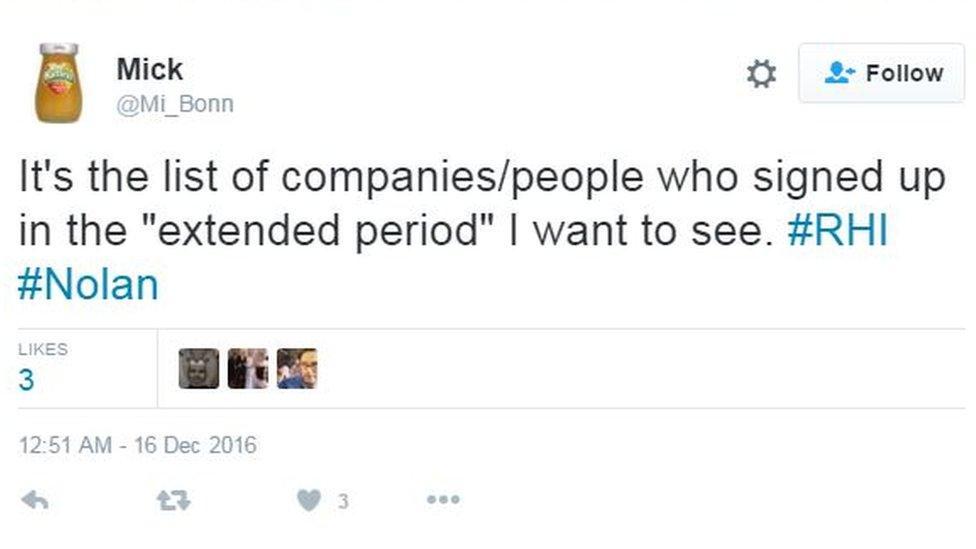
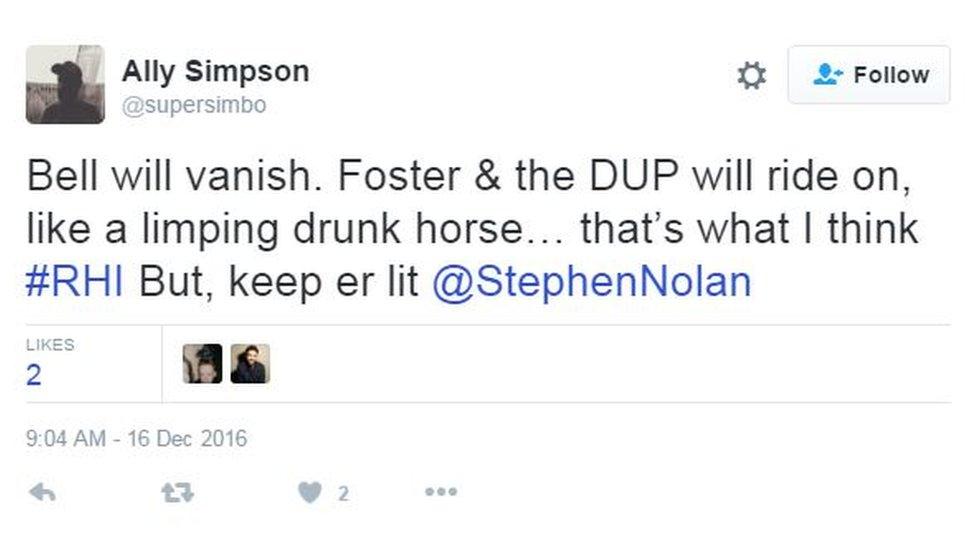
- Published16 December 2016
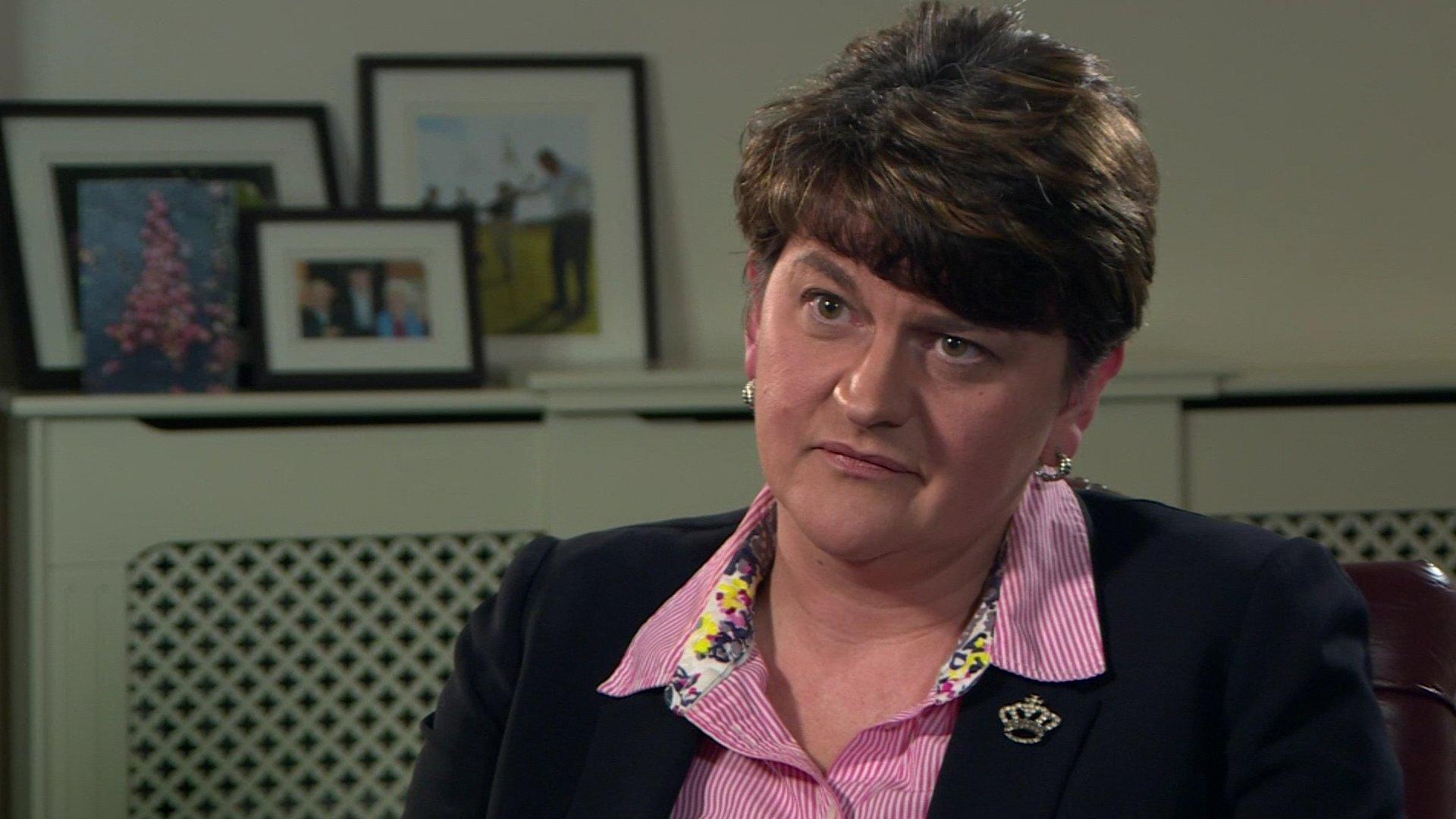
- Published23 October 2019

- Published7 November 2017

- Published16 December 2016